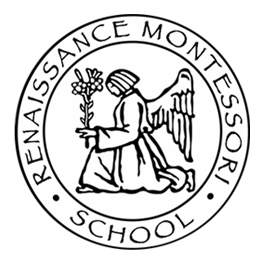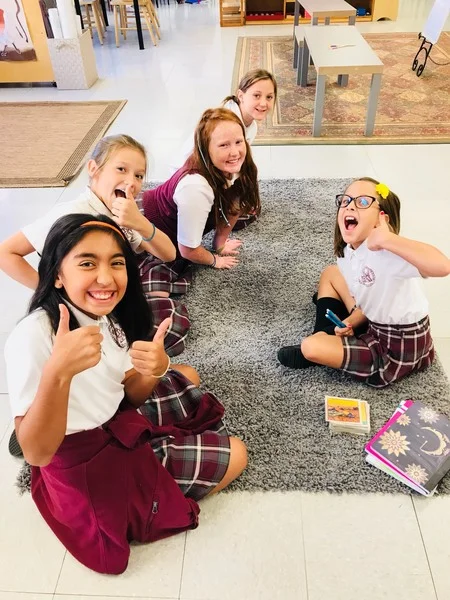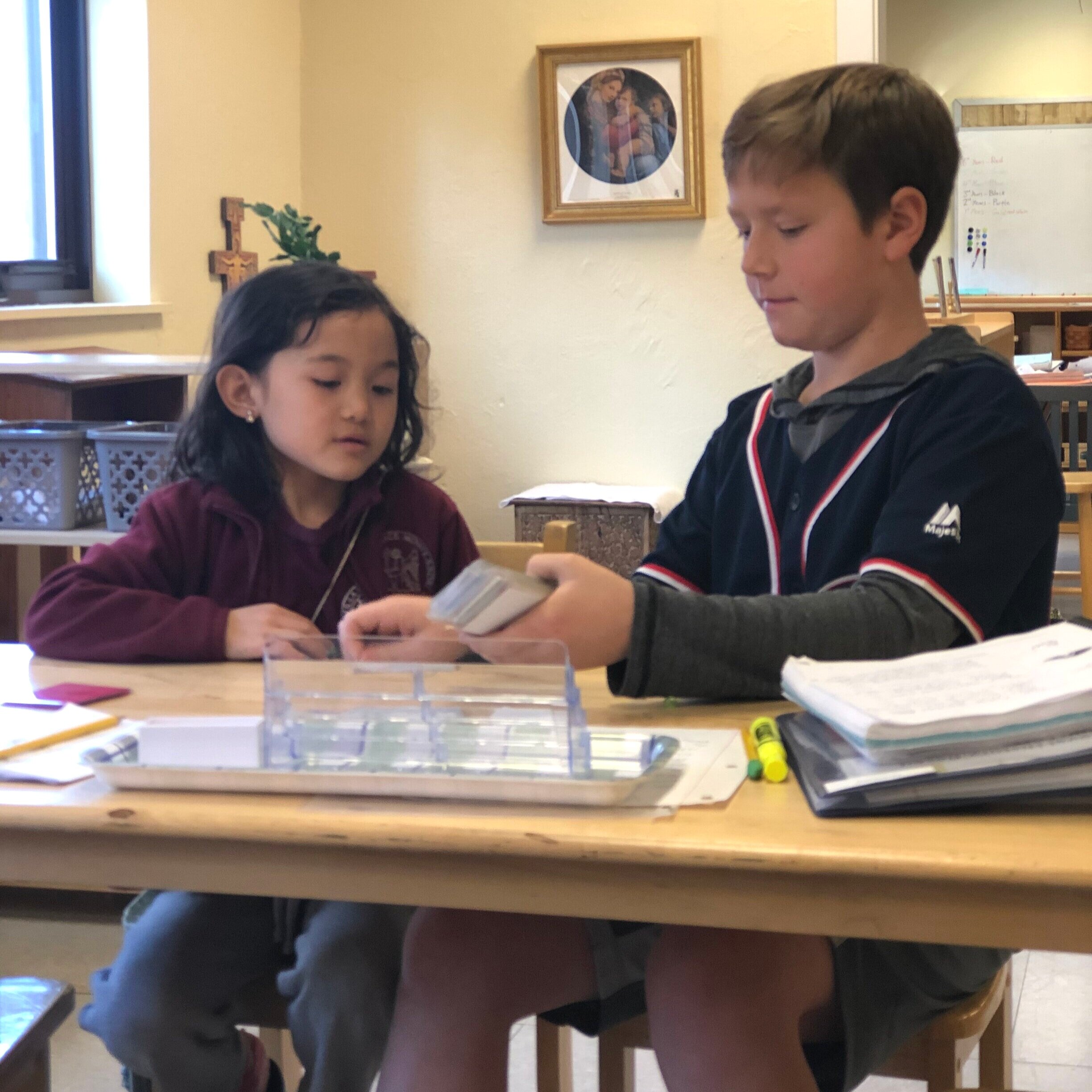Elementary Program
The Elementary Program provides a full expression of the Montessori principles of self-directed, individualized learning in a truly integrated curriculum for children ages 6-12. By building on basic skills acquired through the manipulation of specially prepared materials, the elementary child moves from the concrete to abstract reasoning. At Renaissance, studies are integrated not only in terms of subject matter but in terms of moral learning and Catholic faith formation.
Individual Learning
The Elementary Program offers individualized instruction, which means that the child may work and be helped on an individual basis. Individualized learning establishes more exclusive contact between the child, the Guide, and the work. The Montessori Method of teaching takes each child where he is, and encourages him to develop at his own pace. No child feels pressure to conform or feels he or she is performing better than or worse than their peers. Grades, as understood in a traditional school, are not given. The child compares his work to his work goals, and works to improve from there. This environment encourages the child to love learning for its own sake.
Sequential Materials
Dr. Maria Montessori developed an educational process that begins with using manipulatives (hands-on materials that demonstrate a learning concept) and progresses to representational materials (pictures), and finally to abstract thinking. This process is based on the child’s own developmental phases. These beautiful concrete materials are used throughout the entire curriculum including math, reading, grammar, writing, spelling, geography, history, and natural and physical science. The multi-sensory materials are sequential and self-correcting which cultivates independence, builds self-esteem and creates self-directed learners.
Multi-Age Classes
Dr. Montessori identified stages of development in 6-year increments for children from birth through 24 years of age. Montessori classes are structured around these natural stages of development rather than traditional grade level structuring. This affords each student the opportunity to work on different levels of difficulty depending on the individual’s skills and interests; rather than being restricted by artificial grade level barriers. The elementary child remains in the same class for the full six year cycle. This creates trust in the Guide and the classroom environment, encourages a sense of community, encourages long-term friendships, and essentially frees the child from many social concerns so that he or she can focus on academic development.”
Group Activities
Interpersonal skills become increasingly important as students move through the Elementary Program. Our Elementary Program operates from the understanding that an important challenge at this developmental stage is for the child to discover his or her place in a group and within society as a whole. Thus, many of the activities at the elementary level take place in a group, with children sharing, working, and exploring materials together. The Montessori Method offers many opportunities during the day for both individual and group learning activities. The child learns to interact with others in a natural social environment, free of artificial competition. He discovers that it is desirable to work together, to help each other out, and the result is he learns more than he otherwise would in a traditional, competitive environment. Because the child is naturally curious and interested in learning, every effort is made to encourage this through a non-competitive atmosphere.





